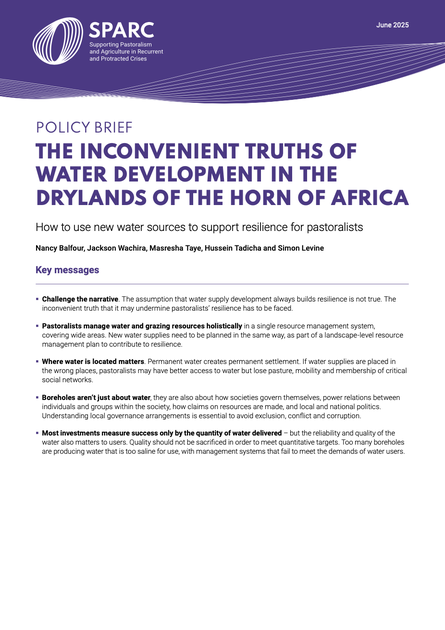
Permanent water supplies are often assumed to have a positive impact on climate resilience. However, there are concerns about the potential negative effects of water supply developments in arid and semi-arid lands (ASALs) on grazing patterns, settlement and conflicts. To manage these risks, planning for water investments must be informed by evidence (not assumptions) on their link with resilience.
This brief looks at: how they functioned and were managed; their impact on people’s resilience and ability to cope with drought; their wider impacts on access to resources and power; and the perceptions of different stakeholders on the role of new water supplies in resilience strategies and climate adaptation. The research analysed water policy in the drylands and the language used to describe new water development. It compared this with the evidence from visits to 25 boreholes across four sites in Marsabit county, Kenya and five sites in Somali Region, Ethiopia.